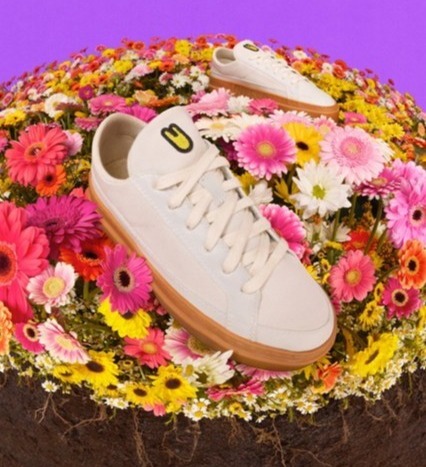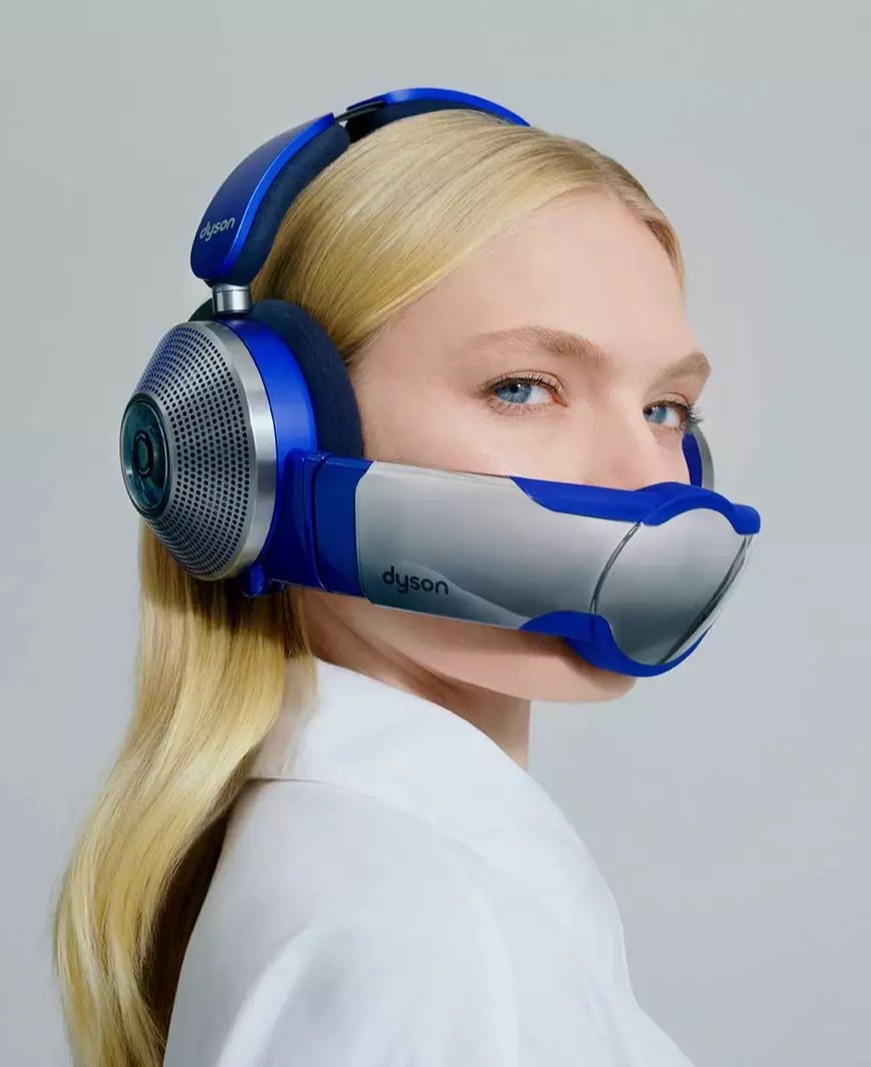16 : 12 : 22 : Weekly Debrief
This week: The Longest Ad, plant-based sneakers, dopamine boosting pop-ups, pollution-filtering headphones, and the post-covid return of international travel.
16 December 2022
Author: The Future Laboratory
Image: Yinka Ilori’s pop-up store in Shoreditch. Photography by Ed Reeve
Share
𝕏
1. The Longest Ad illustrates daily struggles of long Covid
Scotland – Created by The Leith Agency for UK charity Covid Aid, this outdoor advertising campaign exhibits the daily realities of long Covid sufferers by means of 13 feet-long bus stop ads.
An oxymoron to conventional short and snappy ad copy style, The Longest Ad campaign features no less than 3,000 words, explaining the struggles that a long Covid sufferer encounters during the day. Located at two bus stops in Edinburgh, the text is printed on extra-long posters, which spill out from the frame and onto the ground for lack of space.
‘We wanted the reader to experience how difficult each day is. It’s a hard read, and as an ad it breaks most norms, but only by doing this were we able to encapsulate how utterly gruelling each day is,’ explains John McPartland, a creative director at The Leith Agency.
As over 2m people are reportedly affected by the condition in the UK, according to the Office for National Statistics, this Civic Ad aims to shed light on the hardships that long Covid sufferers endure, and to raise awareness about the help that Covid Aid is offering.
2. Unless Collective unveils plant- and mineral-based sneakers
US – Regenerative fashion company Unless Collective is branching out into footwear, with the launch of an entirely plastic-free and biodegradable sneaker.
Most shoes on the market contain plastics or petrochemicals, but not The Degenerate, which has been developed in partnership with material innovation company NFW (Natural Fiber Welding), to be fully made with plant- and mineral-derived materials.
The skate-inspired sneaker has durable soles and soft cushioning for better comfort, and can be repaired, recycled or harmlessly decomposed at the end of its lifecycle thanks to its biodegradable nature.
‘This sneaker will live a long life and when it’s no longer useful, it will be turned into valuable inputs for new soil products, allowing Unless to use the decomposition process to birth something entirely new,’ says the brand’s co-founder and CEO Eric Liedtke.
A new player in the Sustainable Footwear Market, Unless is another brand showing that the industry can reduce its dependence on PVC-based materials through the use of innovative designs.
 The Degenerate by Unless Collective, US
The Degenerate by Unless Collective, US
3. Yinka Ilori's East London pop-up store celebrates West African culture
UK – Homeware designer Yinka Ilori has unveiled his first retail space, a dopamine-boosting and colourful pop-up shop inspired by the designer’s West African heritage.
Located in Shoreditch, east London, the pop-up is open until 3 January 2023 and carries a selection of homeware, stationery and games that double as collectible objects. Both the store’s design and merchandise are intended to inspire joy and a sense of togetherness, with the use of bold colours and patterns, but also interactive elements inviting visitors to engage and connect.
‘I wanted to design a fun, engaging space that tells a story. I want to start a conversation about the future of our stores, how we curate these spaces and what experiences we can create to forge deeper, more meaningful connections,’ says Ilori.
The designer created another community-centred space in 2021 with the Lego Launderette of Dreams. With this project, Ilori is further embracing hyperphysical store design with a nod to his roots and at the same time educating Londoners about West African culture.
 Dyson Zone, UK
Dyson Zone, UK
4. Dyson launches headphones with in-built pollution-filtering technology
Singapore – After six years in development, Dyson has announced the commercialisation of Dyson Zone, the first headphones that double as wearable air pollution filters.
The futuristic device, which is Dyson’s first move into audio, combines a set of noise-cancelling headphones featuring an air-purifying system with a detachable visor that enables users to breathe in the filtered air. The headphones remove air and noise pollution for the wearer, cancelling background noise and streaming pure, high-fidelity audio while delivering fresh air free from city pollution, such as gas, allergens or harmful particles. Unlike face masks, Dyson Zone is touch-free, to avoid any irritation, and could be worn as an alternative to headphones (with added benefits), without compromising on comfort.
‘Air pollution affects us everywhere we go. In our homes, at school, at work and as we travel, whether on foot, on a bike or by public transport. The Dyson Zone purifies the air you breathe on the move,’ explains chief engineer Jack Dyson.
A first-of-its-kind personal electronic device, the Dyson Zone is another tool arming health-conscious urbanites against the adverse effects of Smog Life.
5. Stat: International travel to recover in 2023, led by Australia
Global – Despite forecasts of economic recession, international travel is expected to exceed pre-pandemic levels in 2023, according to a new survey conducted by YouGov for World Travel & Tourism Council (WTTC).
Ahead of the WTTC Global Summit in Saudi Arabia, data company YouGov polled over 26,000 consumers from 25 countries on their travel intentions for the coming year. The survey predicts a recovery in international tourism, with more than a quarter (27%) of consumers planning three or more trips in 2023.
In terms of demographics, data reveals that Australians will be the biggest travel spenders next year, followed by travellers from Canada, Saudi Arabia and The Philippines. In addition, social and environmental criteria are top of mind for travel decision-making, with a majority of consumers (61%) favouring sustainable travel brands and destinations for their travel plans.
With travel picking up and the tourism industry set for growth, more consumers will be turning to experts to navigate travel offerings, revitalising the role of travel agents.
To future-proof your world, visit The Future Laboratory's forecasting platform LS:N Global for daily news, opinions, trends, sector specific insights, and strategic toolkits.
Want to read more?
Become a member today!
Sign up to one of our trends intelligence platform, LS:N Global and get unlimited access to a hive of insights - from microtrends and macro trends to market reports, daily news, research across eight industry sectors and much more.
Discover our memberships
Already a member? Click here to login
